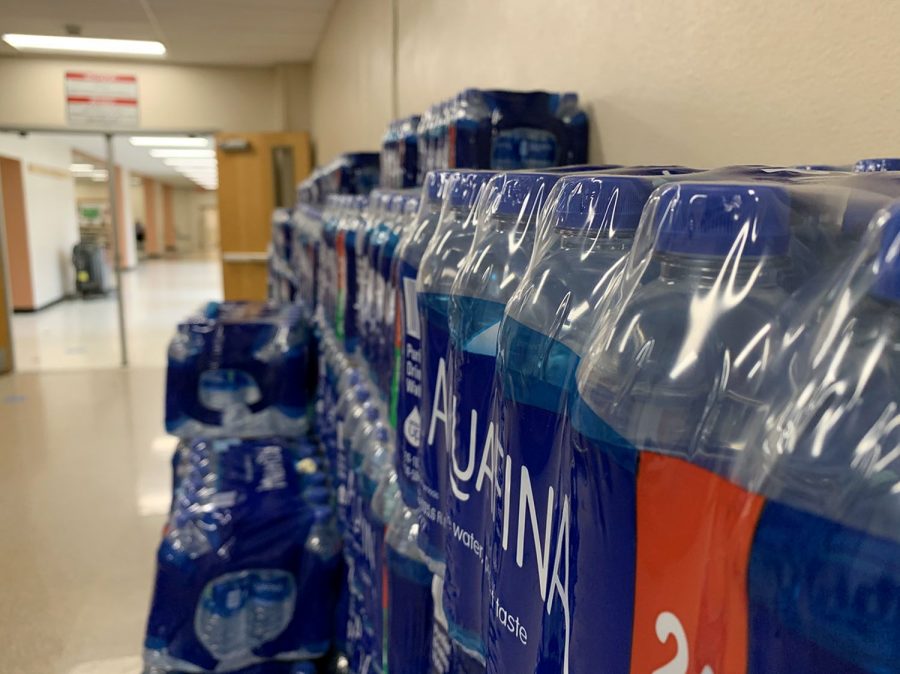New covid rules create more plastic waste
Stacked three layers high, packages of plastic water bottles line the hallway near the cafeteria. The school began providing plastic water bottles this year to compensate for water fountains being shut off to prevent coronavirus spread.
As Plant High School implements changes to help protect against the coronavirus, environmental considerations have been sidelined in favor of improved safety precautions.
In an effort to protect students from the virus, the school district has enacted new rules including requirements that meals be served wrapped in bags or boxes and that all water fountains be turned off. While these policies are intended to reduce COVID-19 transmission, they also necessitate the use of more single–use plastics, which don’t decompose and can be harmful to ocean ecosystems when not disposed of properly.
“It seems like the environment kind of takes a backseat to this virus just like everything else does,” Principal Johnny Bush said. “We’re doing our best to provide the best education possible, but with this virus I think we have to be cautious.”
The effects of the no water fountain requirement are particularly evident. If students forget a water bottle or drink all their water, they have no options for rehydrating except for using one of the “nearly 100,000” plastic water bottles that Mr. Bush reported are currently being stored on campus.
“There’s so many plastic bottles being used around the schools,” junior and member of the Recycling and Ecology clubs Hayden Stern said. “And if you think about how many public schools there are that are going through all these water bottles per day, then that’s really just so sad to think about.”
Despite this, Stern also voiced optimism about the potential positive impacts of many coronavirus adaptations, particularly the switch many teachers have made to virtual instead of paper-based assignments.
“Because there’s a huge switch to online learning, there’s probably going to be a big reduction in paper usage which is obviously great,” Stern said. “So while we do have to increase our plastic use for safety precautions I do think that in long terms this predicament is going to help us transition to a more paperless world where we can use our technology to save trees.”
Regardless of the positive or negative ecological impact of the new COVID-19 policies, they probably aren’t going away anytime soon, at least as long as coronavirus transmission remains a threat.
“These are really unprecedented times that we’re dealing with,” Bush said. “Once we get past this, I think we can start working back towards normal. The entire world is dealing with what we’re dealing with. We’re just a very small scale of what the world is dealing with.”
To learn more click here

